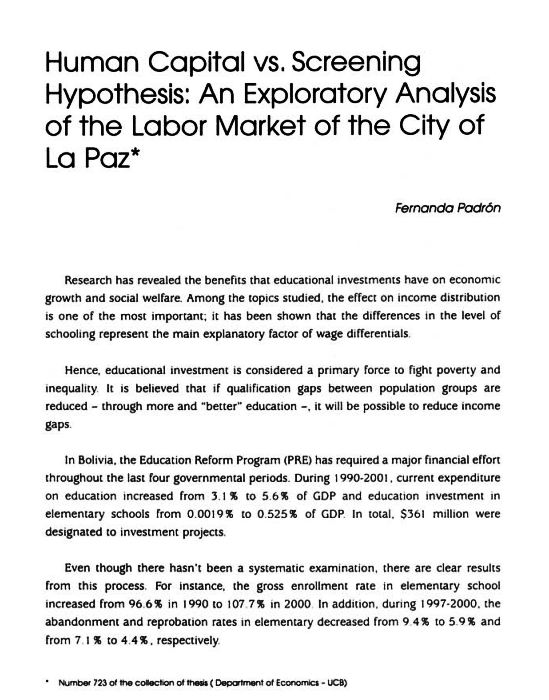Human Capital vs. Screening Hypothesis: An Exploratory Analysis of the Labor Market of the City of La Paz
DOI:
https://doi.org/10.35319/lajed.20042327Keywords:
Economic growth, Inequality, Education, Labor MarketAbstract
Research has revealed the benefits that educational investments have on economic growth and social welfare. Among the topics studied, the effect on income distribution is one of the most important; it has been shown that the differences in the level of schooling represent the main explanatory factor of wage differentials.
Hence, educational investment is considered a primary force to fight poverty and inequality. It is believed that if qualification gaps between population groups are reduced - through more and "better" education -, it will be possible to reduce income gaps.
Downloads






